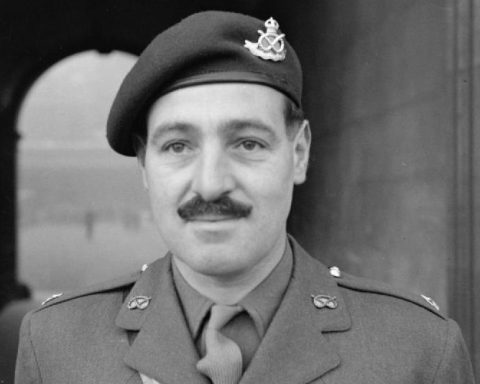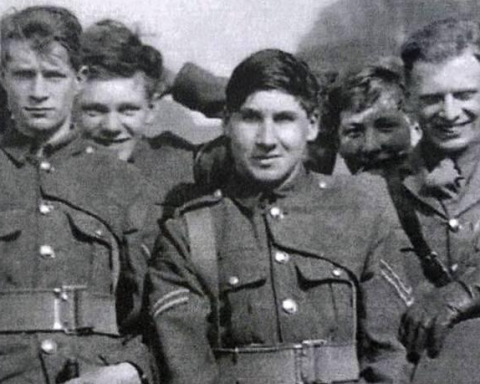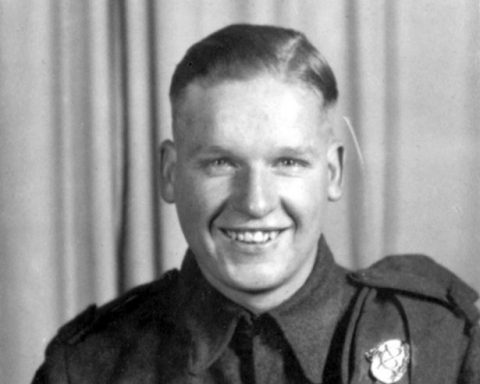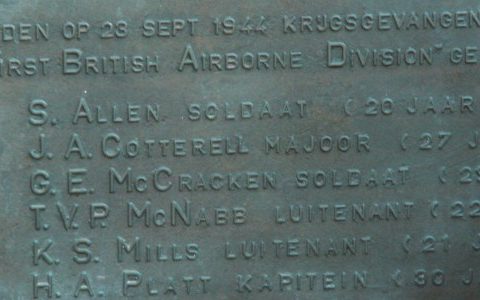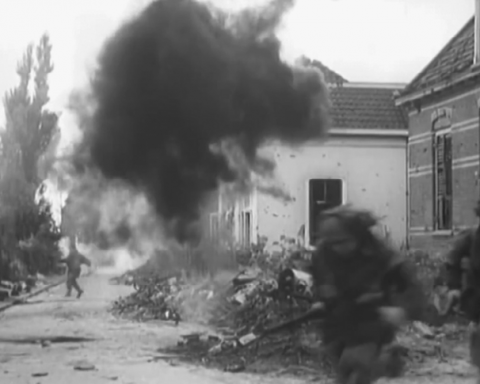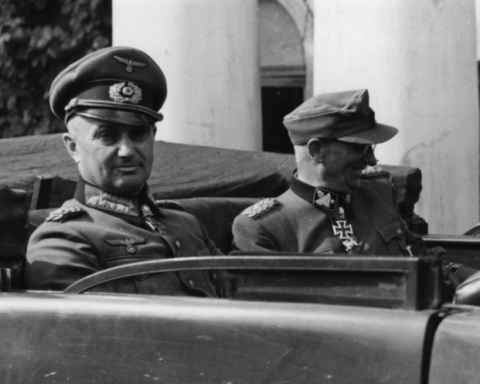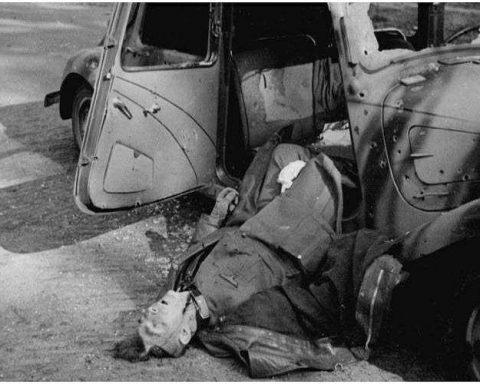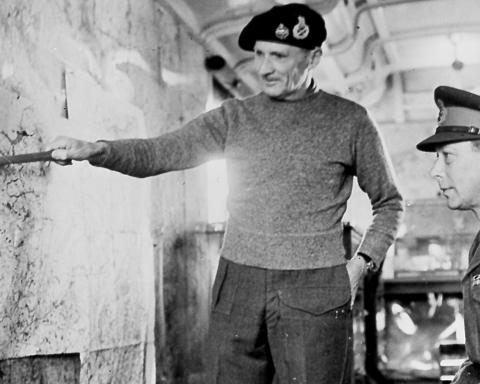Lieutenant David Lord was one of five British soldiers to earn a Victoria Cross during the Battle of Arnhem: the highest British military award.
David Lord, born in Ireland, was a pilot with the 271st Squadron of the Royal Air Force. As a pilot, he flew one of the aircraft that was responsible for supplying the British airbornes in Oosterbeek during the Battle of Arnhem.
The British airborne soldiers had only had supplies on the airborne landings for a few days. Due to the delay of the arrival of the XXX Corps ground forces, air supplies were necessary to ensure that the British had adequate food, ammunition and medical supplies.
Baskets and containers with new stock were dropped by the RAF on parachutes above the British perimeter in Oosterbeek. Many of those supplies, incidentally, came into the hands of the Germans. It is estimated that only 10 percent of all supplies shed reached beleaguered British troops.
Initially, the RAF was unaware that the landing areas for the supplies were occupied by the Germans. When they knew that, the British perimeter in Oosterbeek was so narrow that it was still difficult to shed stocks at the right time.
In addition, the Germans had copied the smoke signals from the British, making it impossible for the pilots to pick out the correct smoke signal.
Flak theorems
The Germans were well aware that the RAF would supply the British by air. For that reason, a large number of Flak scaffolding had been set up around Oosterbeek to take down the slow-flying Dakota aircraft from the RAF. The British planes had to fly through hell of anti-aircraft guns trying to shed the supplies.
To increase the likelihood that supplies would indeed end up with British troops, the RAF’s Dakotas flew at an altitude of just 300 meters. David Lord was a pilot of one of the Dakota transport aircraft that flew with supplies to the British in Oosterbeek on Tuesday 19 September 1944.
At an altitude of 500 meters near Arnhem, David Lord’s plane was hit twice by anti-aircraft guns. The aircraft’s right engine caught fire.
From the nomination for the Victoria Cross:
“David Lord had every right at that time to leave the aircraft formation or even to jump out of his plane. But after hearing that part of his crew was injured and they would be at the drop-off site within three minutes, he said to his crew that he would complete the mission because the airborne troops needed supplies urgently. ”
In the back of the plane was a crew of six trying to eject the baskets of supplies from the plane as soon as they reached the drop-off area.
Second run
While the crew was working on it, the burning Dakota caught the attention of all German Flak positions in the area. The anti-aircraft gunfire was a killer, but after they passed the launch site, Lord heard that two more baskets of supplies had been left on the plane.
Lord must have known that the right wing of his plane wouldn’t last long, but Lord turned his plane around. he flew over the British sector again with his burning plane to drop off the remaining baskets. The second run across the UK sector lasted a total of eight minutes, with the aircraft continuously under heavy anti-aircraft fire.
After the last baskets had also been dropped, Lord ordered his crew to jump. He himself remained behind the control stick and made no attempt to leave the plane.
The right wing broke off a few seconds later. One of the crew members was ejected from the plane while helping the other crew members to put on their parachute. This saved his life. The other crew members and pilot David Lord were killed when the plane crashed moments later.
From the nomination for the Victoria Cross:
“By accomplishing his mission in a damaged and burning airplane, giving his crew the opportunity to escape while continuing to operate the airplane, Flight Lieutenant Lord has shown extraordinary courage and self-sacrifice.”
Flight Lieutenant David Lord, together with his killed crew members, is buried in the Airborne cemetery in Oosterbeek.
The five Victoria Crosses during the Battle of Arnhem were awarded to:
Lieutenant John Hollington Grayburn
Flight Lieutenant David Samuel Anthony Lord
Lance Sergeant John Baskeyfield
Captain Lionel Queripel
Major Robert Henry Cain .


